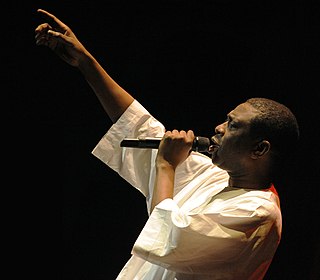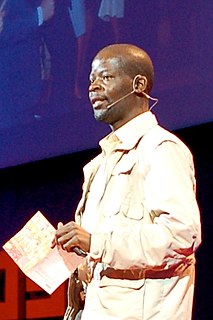A Quote by Marcus Samuelsson
There has long been a debate in the aid community and in Africa about how to most effectively help situations of poverty in developing nations and underprivileged communities.
Related Quotes
The notion that aid can alleviate systemic poverty, and has done so, is a myth. Millions in Africa are poorer today because of aid; misery and poverty have not ended but increased. Aid has been, and continues to be, an unmitigated political, economic, and humanitarian disaster for most parts of the developing world.
If you think about the last 50 years, Africa's proximity and historical context has absolutely been with Europe and the United States, but their approach in dealing with the economic challenges that Africa faces in particular has been one of handing out aid, not developing economies, not building a long term relationship around agriculture and so on.
Easterly, a celebrated economist, presents one side in what has become an ongoing debate with fellow star-economist Jeffrey Sachs about the role of international aid in global poverty. Easterly argues that existing aid strategies have not and will not reduce poverty, because they don't seriously take into account feedback from those who need the aid and because they perpetuate western colonial tendencies.
Moyo, a Zambia-born economist, asserts that aid is not only ineffective-it's harmful. Her argument packs a strong punch because she was born and raised in Africa. Moyo believes aid money promotes the corruption of governments and the dependence of citizens, and advocates that an investment approach will do more to help reduce poverty than aid ever could.
I think everybody knows that Africa is in a very deep crisis. There is economic misery and social deprivation and that Africa needs help but the question then is how. And also we have to make sure that we don't repeat old mistakes; this help is only short term. It doesn't address Africa's long-term fundamental needs and how to put Africa on the right track to development. What Africa needs to do is to grow, to grow out of debt.
I think people should know more of Africa in terms of its joie de vivre, its feeling for life. In spite of the images that one knows about Africa - the economic poverty, the corruption - there's a joy to living and a happiness in community, living together, in community life, which may be missing here in America.
Africa needs help, no question about that but I'd rather prefer that the money is channeled. That's what I call smart aid; it's channeled through African civil society groups. These are the groups which can be held more accountable. These are the groups which will sort of monitor how the aid money is spent.
My fear is that of all the choices people face today, the one they rarely consider is, "How can I serve most effectively and fruitfully in the local church?" I wonder if the abundance of opportunities to explore today is doing less to help make well-rounded disciples of Christ and more to help Christians avoid long term responsibility and have less long-term impact.



































